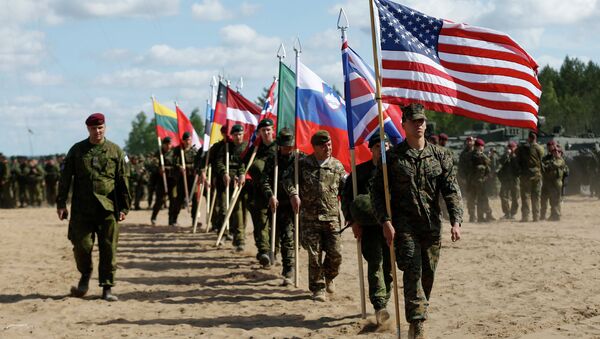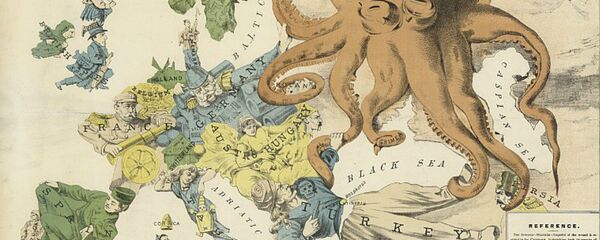"The United States is the world’s strongest nation, enjoying unique advantages in technology, energy, alliances and partnerships, and demographics," the document reads. "However, these advantages are being challenged."
The Pentagon’s strategy appears to be transitioning from a focus on extremists to more traditional “state adversaries.” This includes the usual suspects: North Korea and China. Fears of losing its Pacific influence have caused the US to strengthen security cooperation with Japan, Australia, South Korea, and other Southeast Asian countries.
But at the top of the list is America’s old Cold War rival: Russia.
Firstly, Washington continues to assert baseless claims about Moscow’s involvement in the Ukraine crisis:
"Russia’s military actions are undermining regional security directly and through proxy forces," the report says, without making any mention, say, of the US involvement in the Saudi bombing campaign in Yemen.
The document then goes on to accuse Russia of threatening the Intermediate-Range Nuclear Forces Treaty. It was, of course, the United States that was the first nation since the World War II to back out of a major arms treaty, when it abandoned the Anti-Ballistic Missile Treaty in 2002.
The new strategy also views threats against NATO of paramount importance:
"NATO provides vital collective security guarantees and is strategically important for deterring conflict, particularly in light of recent Russian aggression on its periphery," the document reads.
While Washington continues to hype the myth of Russian aggression — ostensibly based on the reunification of Crimea with Russia after the peninsula voted overwhelmingly to do so — it is the United States and its NATO allies that are drastically increasing their military presence along Russia’s borders. On Monday, the Obama administration signaled its plans to deploy tanks and other heavy artillery to six countries in Eastern Europe.
Included in that list are the Baltic nations, which have repeatedly expressed unfounded fears about a Russian invasion. Russia’s Chief of Staff Sergei Ivanov called such suggestions nonsense.
"I find it funny to hear how Russia is being accused of military aggressiveness," he recently told the Financial Times. "There is an expression, 'this is nothing but raving nonsense.' It is a psychological disorder to claim Russia will invade the Baltic States."
Nevertheless, the US plans to "continue to support our NATO partners to increase their interoperability with US forces and to provide for their own defense."
Washington may do better to keep its focus trained on extremist threats it helped create, instead of inventing reasons to begrudge an old enemy it sees as a danger to its own hegemony.





